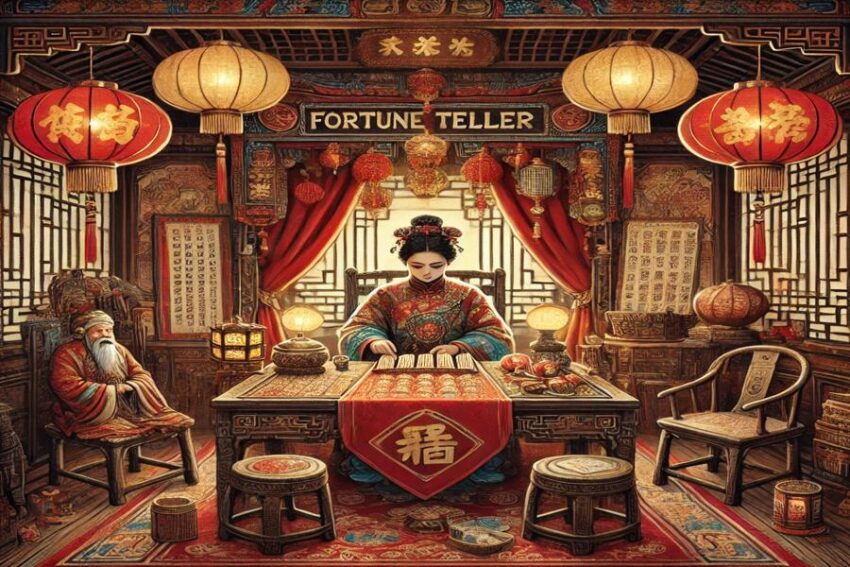Table of Contents
Psychic Abilities Around the World: How Different Cultures View Them
Psychic abilities have captivated societies across the globe for centuries, yet each culture interprets and values these supernatural gifts uniquely. From spiritual healers in Africa to mystic sages in India, psychics play vital roles that connect the living with the unseen world, offering guidance, healing, and wisdom. This list dives into 13 distinct perspectives on psychic abilities from around the world, revealing the cultural diversity in how supernatural talents are understood, respected, and practiced.
1. Shamans in Indigenous Siberian Cultures
In Siberian Indigenous cultures, shamans serve as spiritual intermediaries, using psychic abilities to communicate with spirits and guide their communities. Through rituals involving drumming, chanting, and even fasting, Siberian shamans enter trance states, which they believe allow them to visit other realms and interact with ancestral spirits. Their psychic gifts are considered sacred, and their guidance in matters of health, nature, and social harmony is highly valued. Here, psychic abilities are more than a personal trait—they’re seen as a connection to the spirit world, a role often passed down through generations.
2. Spirit Mediums in Thailand
Thai spirit mediums, or “mor song,” act as conduits for deities and local spirits, bridging the gap between the physical and spiritual worlds. These mediums are consulted for advice on personal, health, and business matters, and their psychic abilities are believed to invite protection and favor from the spirits. During festivals, mediums often perform elaborate rituals to honor spirits, showcasing their abilities. Thai culture reveres mediums for their role in maintaining balance and harmony, viewing their psychic abilities as a direct line to divine insight.
3. Oracles in Ancient Greece
Ancient Greek oracles, particularly the Oracle of Delphi, were highly influential figures believed to communicate with the gods. Priestesses known as Pythia entered trances and delivered cryptic prophecies believed to be inspired by Apollo, the god of prophecy. Leaders and citizens alike sought their guidance on matters ranging from politics to war. Psychic abilities in ancient Greece were considered sacred and carried significant social and political power, with oracles serving as the voice of divine will.
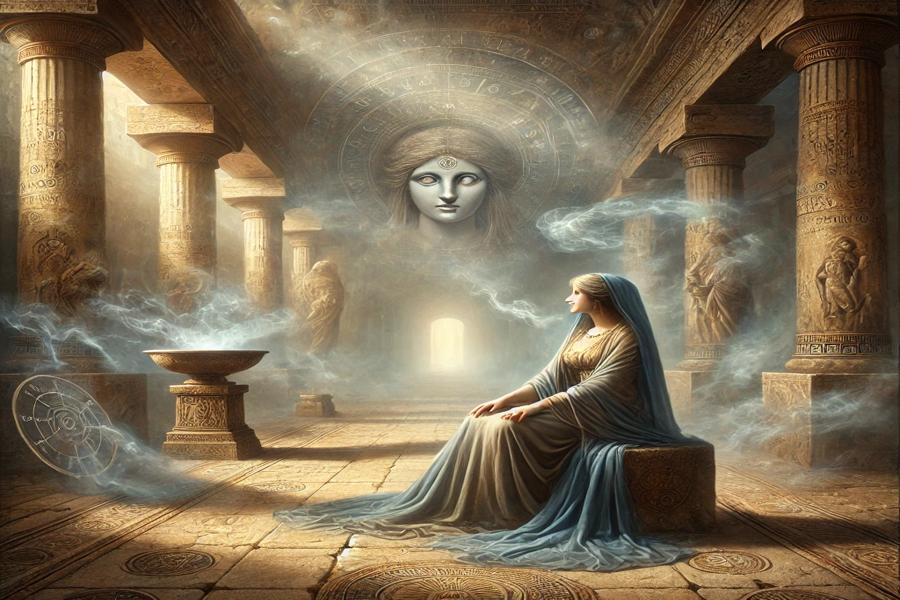
4. Sangomas in South African Cultures
Among the Zulu and other South African cultures, Sangomas are spiritual healers who use psychic abilities to connect with ancestors and diagnose illnesses. They perform rituals involving drumming, dancing, and divination to receive messages from the spirit world. Sangomas are regarded as community protectors and healers, and their psychic abilities are seen as ancestral gifts that provide both physical and spiritual healing. The process of becoming a Sangoma involves a calling from the ancestors and rigorous training, reflecting the high respect placed on their psychic abilities.
5. Clairvoyants in Indian Hindu Culture
In Hindu culture, psychic abilities, or “siddhis,” are considered signs of spiritual advancement and are often associated with enlightened sages or yogis. Through intense meditation, ascetics are said to develop powers like telepathy, precognition, and clairvoyance as they progress along their spiritual path. In India, psychic abilities are viewed as a byproduct of spiritual discipline rather than an end goal, highlighting a belief that supernatural powers are gifts from the divine, achieved only by those with a deep connection to the cosmos.
6. Seers in Celtic Tradition
In ancient Celtic societies, seers, or “filidh,” held esteemed positions as spiritual advisors with the power of foresight. They interpreted omens, conducted rituals, and were consulted for guidance in times of conflict or decision-making. The Celts believed psychic abilities connected seers to natural and supernatural forces, giving them insight that others lacked. These abilities were often linked to the land, viewed as sacred and imbued with spiritual energy, and seers were respected as keepers of both nature’s secrets and wisdom.
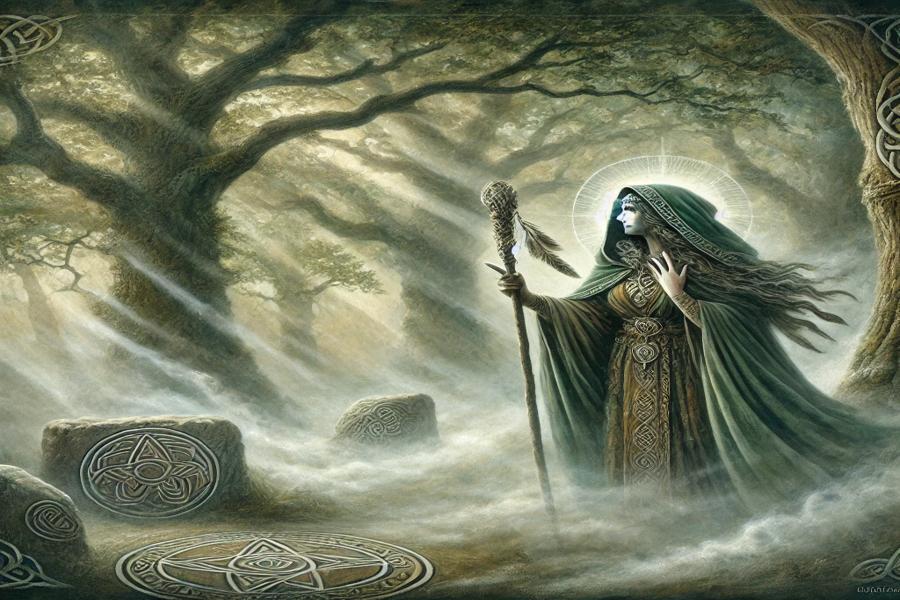
7. Dream Interpreters in Native American Cultures
In many Native American traditions, dreams are believed to carry messages from ancestors, nature spirits, or guides, and designated interpreters help individuals make sense of these psychic visions. Elders or medicine people, known for their wisdom and connection to the spirit world, often take on this role. Dream interpretation is highly respected, as dreams are thought to reveal personal truths, guidance, and warnings. In this context, psychic abilities are seen as part of a sacred relationship with the natural and spiritual worlds.
8. Fortune Tellers in Chinese Culture
Chinese culture has a long history of divination practices, including fortune telling, palmistry, and the I Ching, a classic text used for guidance. Known as “suanming” or “mangpai,” Chinese fortune tellers provide insights on matters like health, family, and career by reading patterns, faces, or symbols. These psychic abilities are deeply embedded in Chinese cultural beliefs about fate, destiny, and cosmic balance, and fortune tellers are highly valued for helping individuals align with favorable energies and make life decisions.
9. Houngans and Mambos in Haitian Vodou
In Haitian Vodou, houngans (priests) and mambos (priestesses) serve as spiritual leaders and psychic channels, able to communicate with the “loa,” spirits that govern the natural world and human life. These practitioners use psychic abilities to connect with loa, often through rituals involving dance, drumming, and offerings. Psychic abilities in Haitian Vodou are viewed as gifts from these powerful spirits, and houngans and mambos are responsible for providing healing, guidance, and protection within their communities.
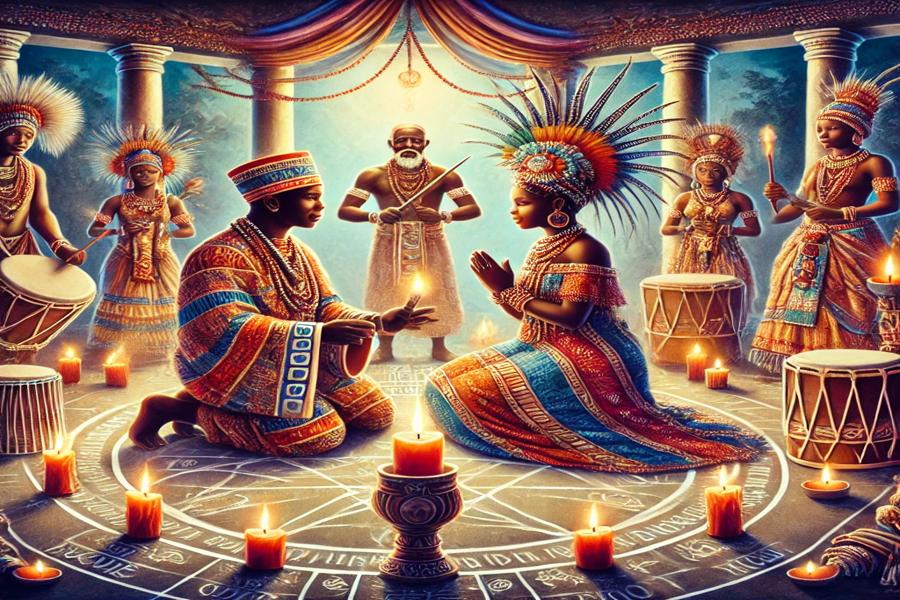
10. Sufi Mystics in Islamic Culture
In Islamic Sufism, mystics or “walis” (friends of God) are believed to attain supernatural abilities, including precognition and healing, through their deep devotion to God. These psychic abilities are considered divine gifts, manifesting as the mystic becomes closer to the divine. Sufi mystics are revered in Islamic societies, where their abilities are seen as expressions of divine wisdom, earned through prayer, meditation, and a life of purity. Their psychic insights are treated with reverence, as they are viewed as conduits of God’s will.
11. Curanderos in Latin American Culture
Curanderos are traditional healers in Latin American cultures who use a blend of psychic abilities, herbal knowledge, and spiritual practices to heal physical, emotional, and spiritual ailments. They perform rituals and prayers to connect with spirits, saints, and ancestors, believing their psychic abilities to be sacred gifts meant for healing and protection. Curanderos are trusted community figures who guide individuals on life’s challenges, and their abilities are a valued aspect of Latin American spiritual tradition.
12. Kahunas in Hawaiian Culture
Kahunas are Hawaiian spiritual leaders believed to possess psychic powers like healing, divination, and spirit communication. These wisdom-keepers use their powers to bless homes, offer protection, and maintain community harmony. Psychic abilities among kahunas are seen as ancient gifts closely tied to nature and Hawaiian spirituality. They undergo rigorous training, and their work is highly respected, viewed as essential for preserving the cultural heritage and spiritual health of the community.
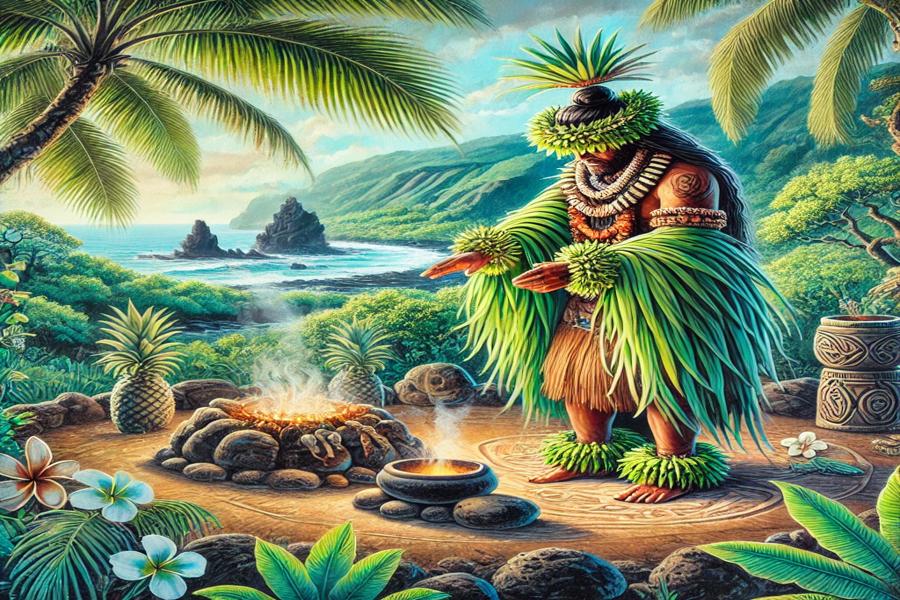
13. Tohunga in Māori Culture
In Māori culture, tohunga are revered as spiritual leaders with psychic abilities that allow them to interpret omens, offer guidance, and perform healing rituals. They serve as intermediaries between people and their ancestors, believed to possess powers granted by ancestral spirits. Psychic abilities among the tohunga are treated with deep respect, as these figures play vital roles in protecting cultural traditions, maintaining harmony within their communities, and helping individuals connect to their heritage.
Conclusion: A Global Perspective on Psychic Powers
These 13 cultural perspectives on psychic abilities highlight the fascinating diversity in how societies understand and value supernatural gifts. From shamans in Siberia who mediate between worlds to Sufi mystics whose abilities are considered divine blessings, each culture brings unique beliefs.
Whether for healing, guidance, or communicating with the spirit world, psychic abilities are powerful tools that connect the seen and unseen. The shared reverence across these societies reminds us of the universal human intrigue with what lies beyond ordinary perception, adding rich depth to our understanding of psychic phenomena.
